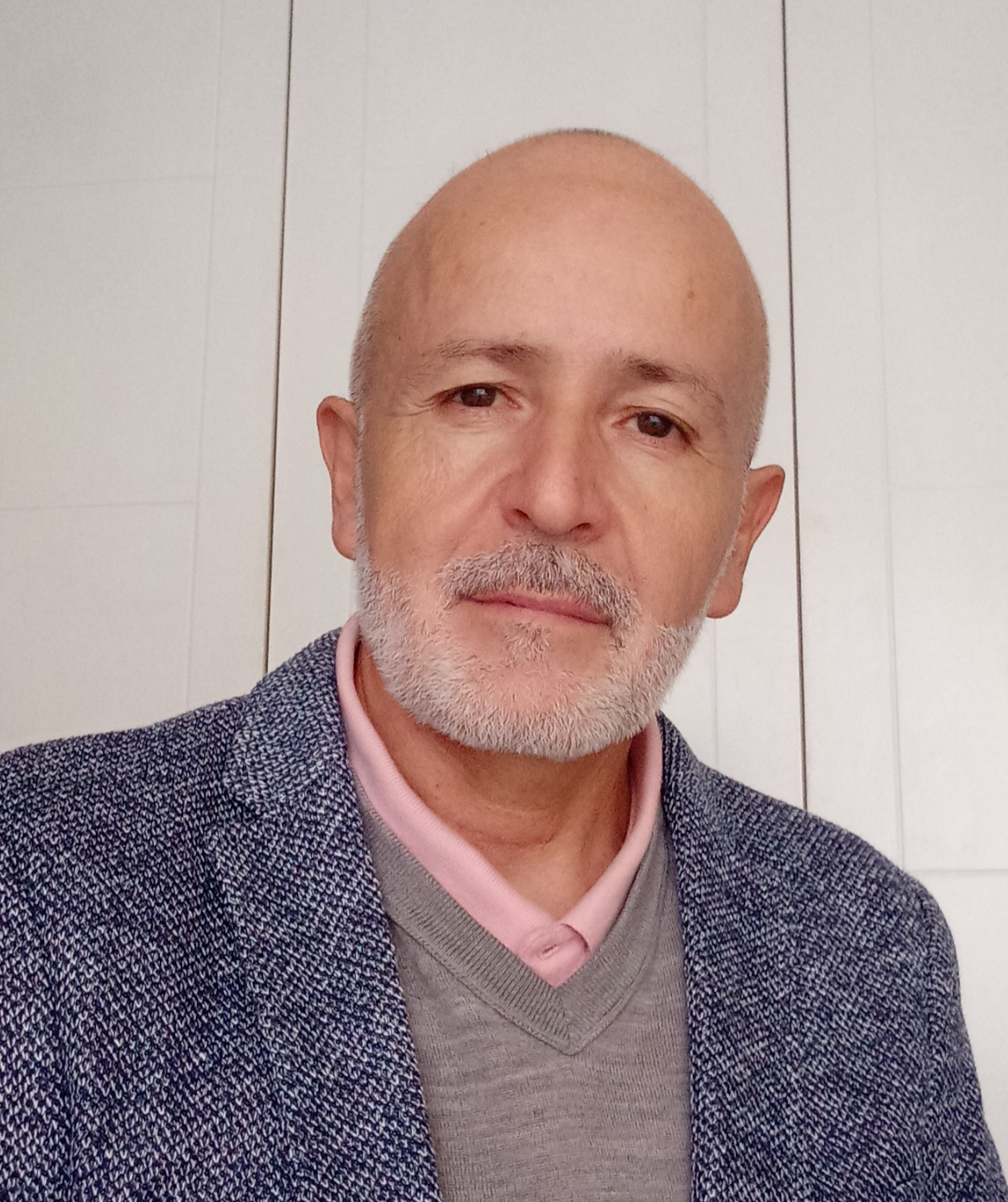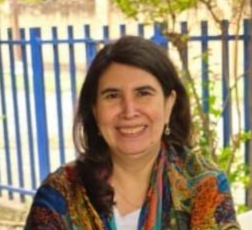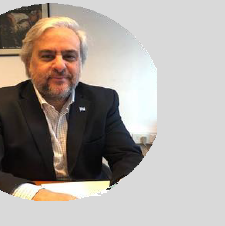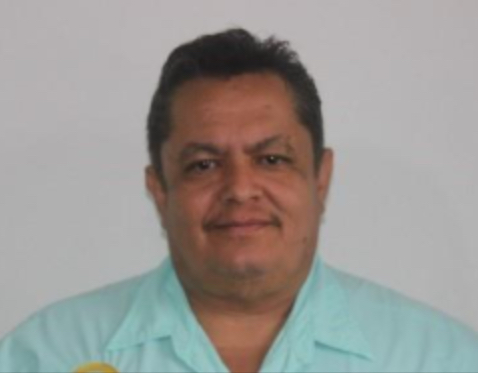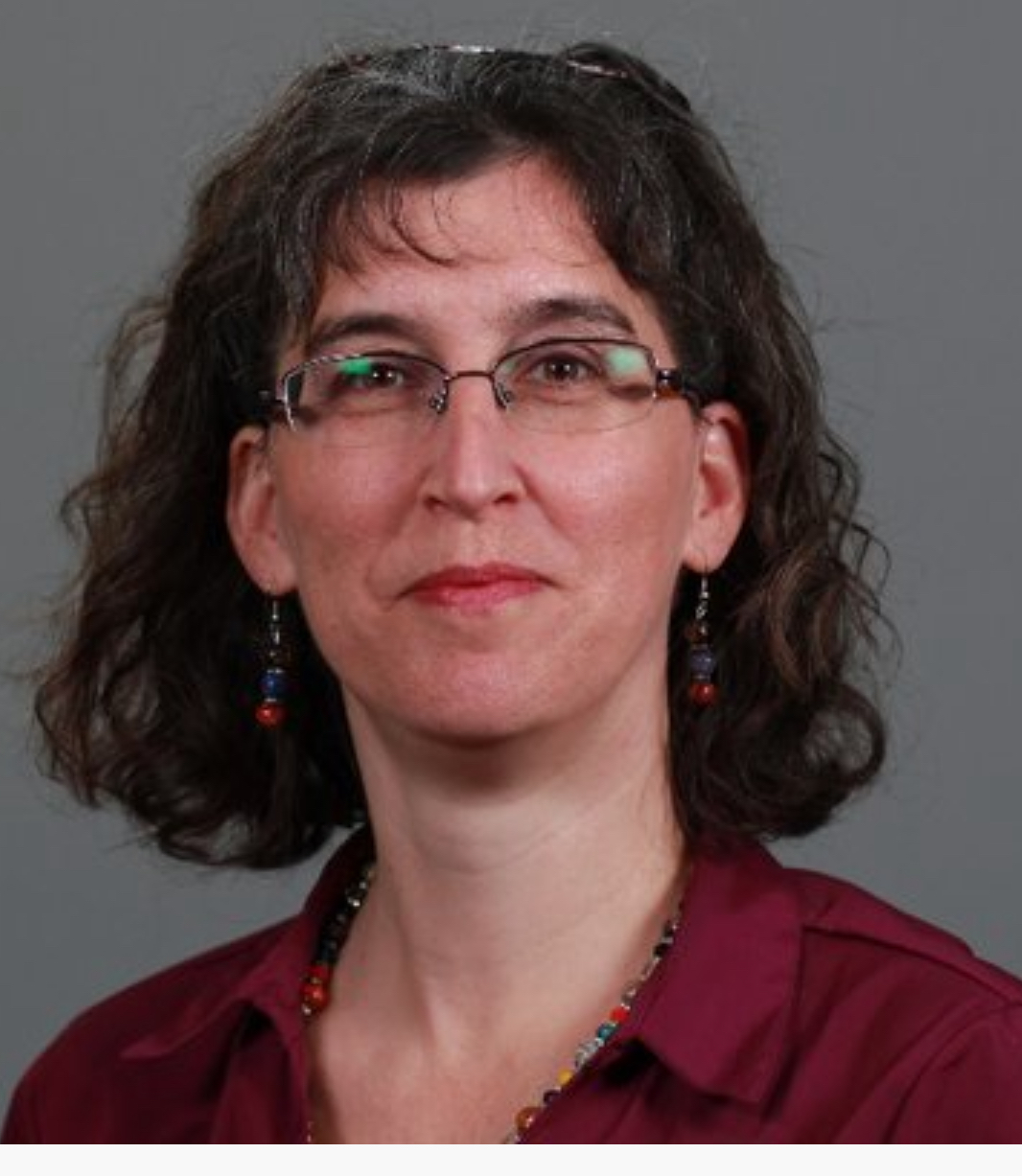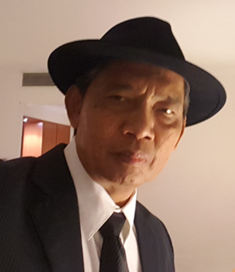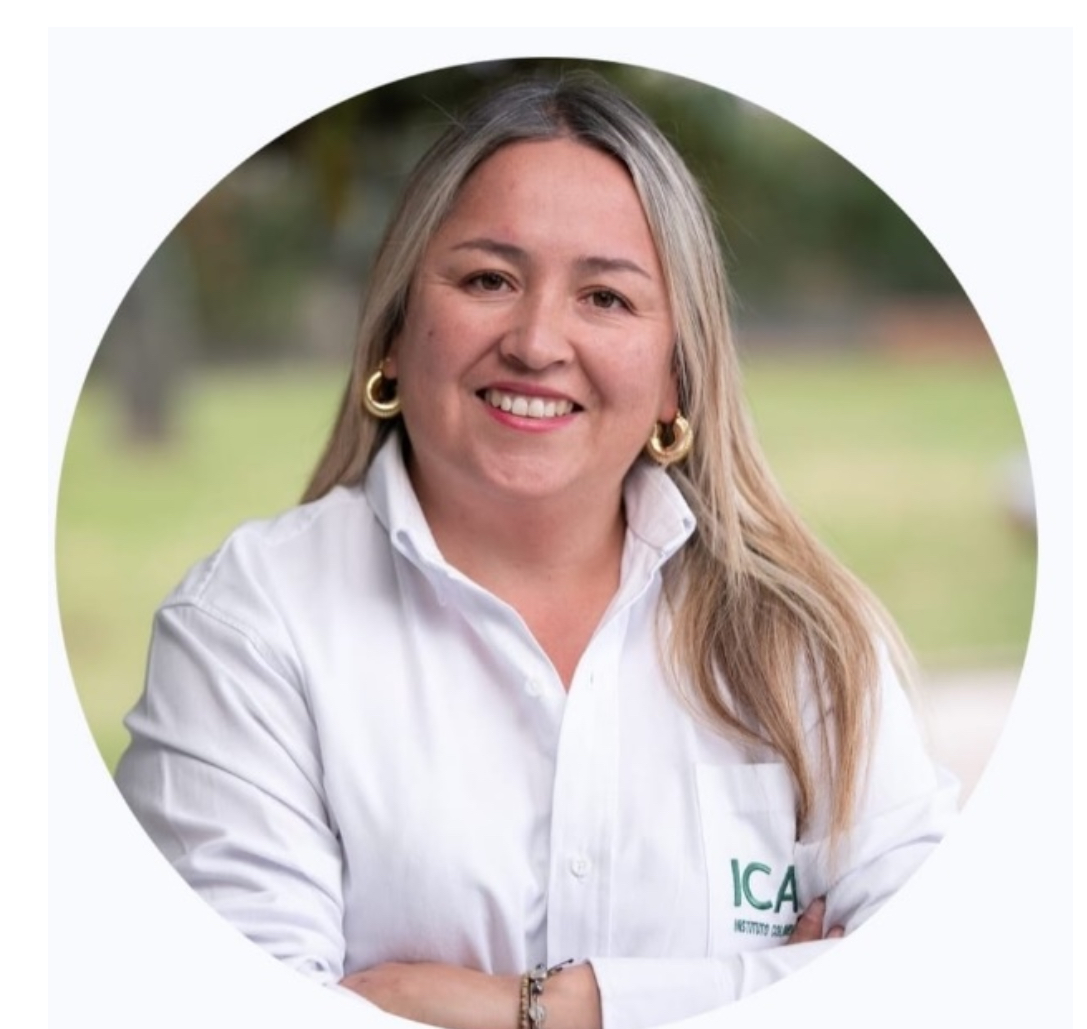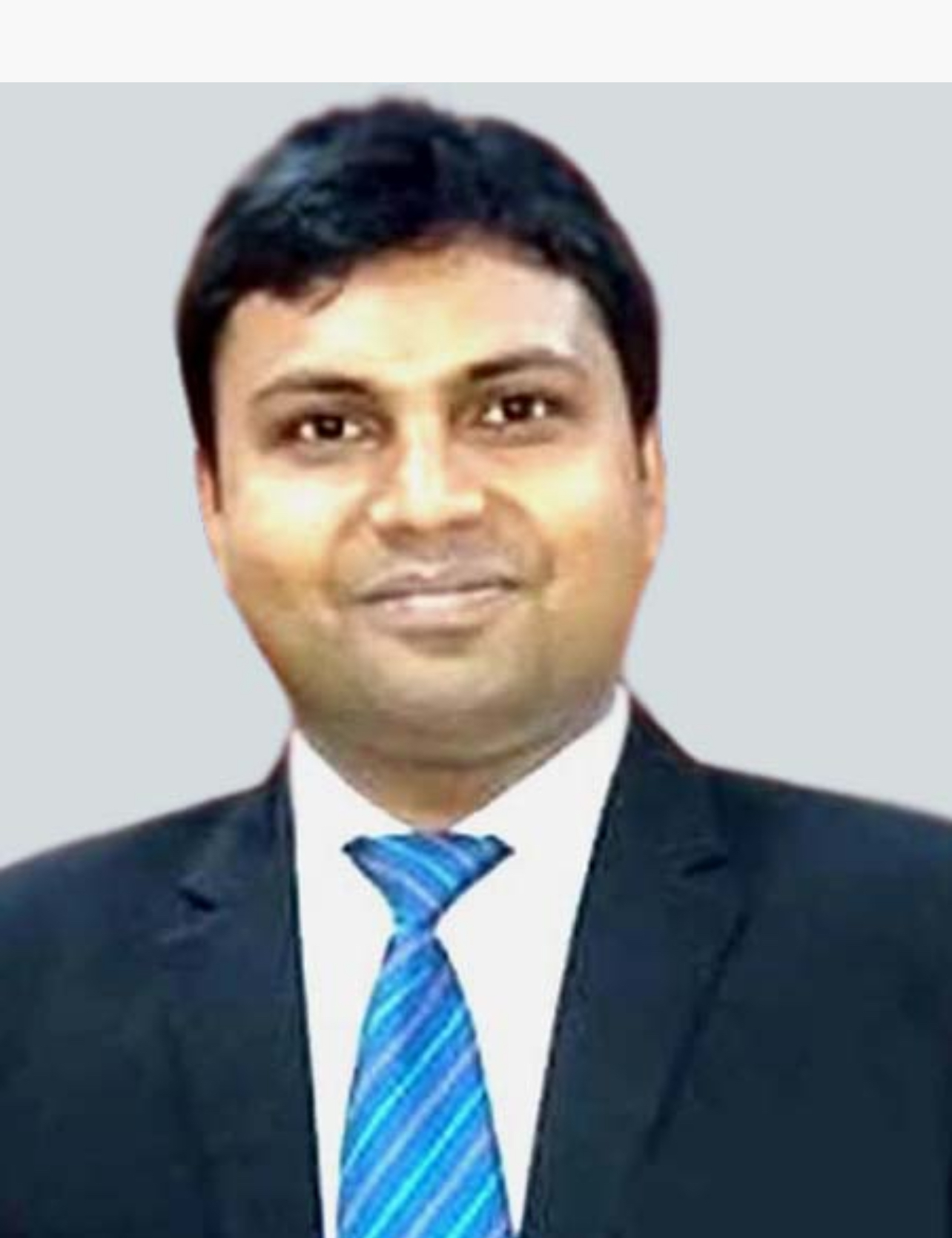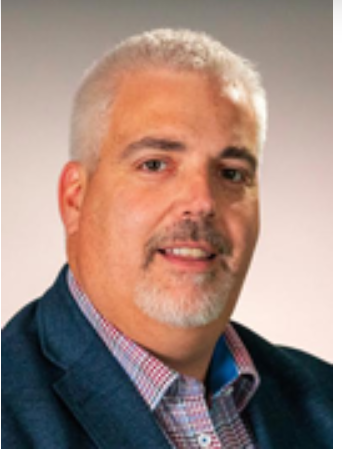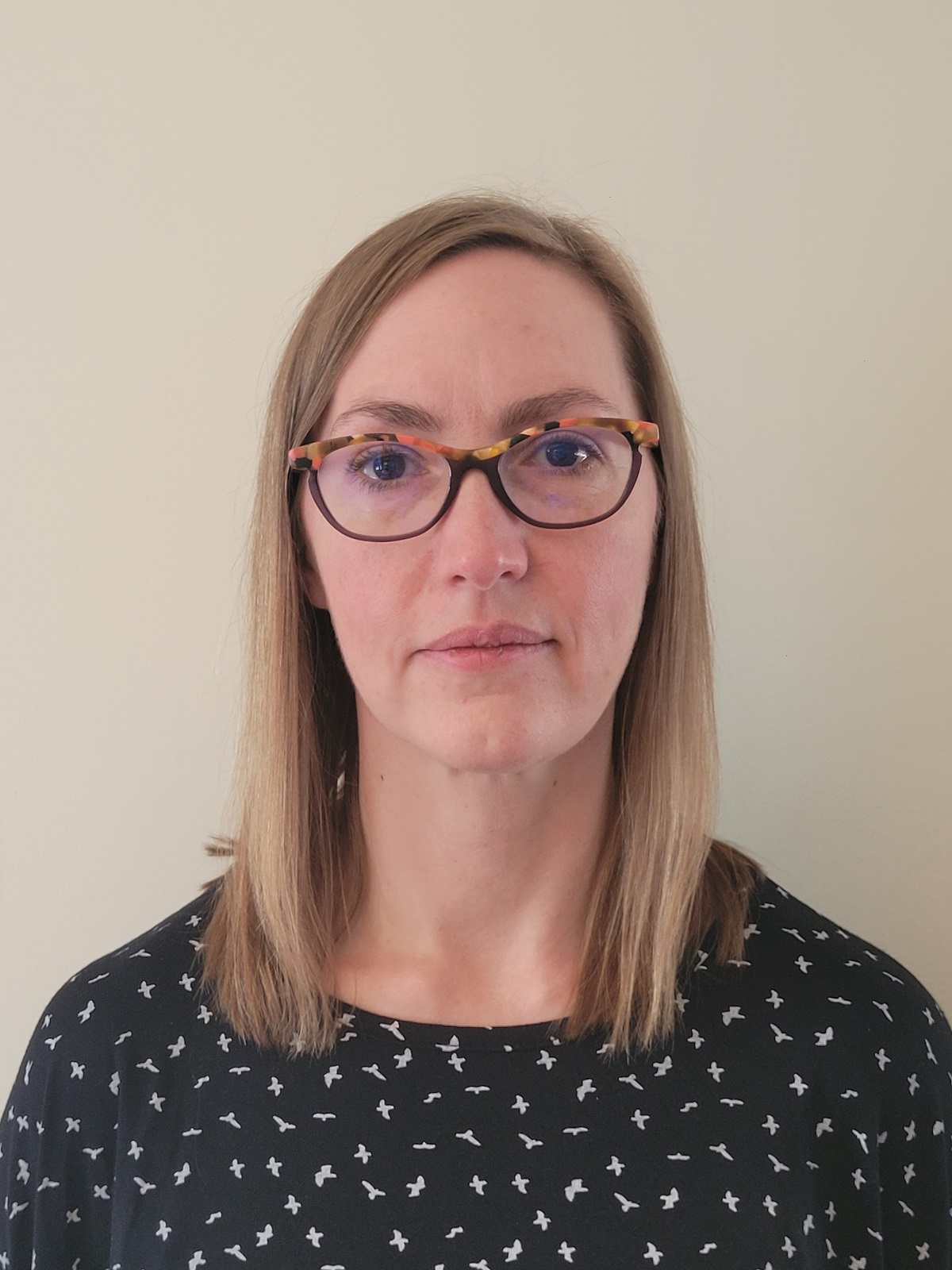Speakers and case study presenters / Presentations
Speakers:
|
|
Álvaro Sepúlveda L., SAG Chile
Álvaro Sepúlveda L. is an Agricultural Engineer. From 2014 he is the Manager of International Multilateral Topics and the International Cooperation in Plant Health at the Agricultural-Forestry and Seed Protection Division of Agricultural and Livestock Service (SAG). He has extensive experience in phytosanitary regulations and is in charge of phytosanitary issues in bilateral agreements in the SPS chapters. He was a Member of the Standards Committee (SC) of the IPPC, representing Latin America and Caribbean Region during 3rd term (2021 – 2024) , was stewards for several topics on the development of ISPMs and IPPC Technical Panels, and also served as the SC rep liaison person with the IPPC Implementation and Capacity Development Committee. |
|
|
Beatriz Melchó Ariztia, COSAVE
Beatriz has been an official from 1983 to the present of the Ministry of Livestock, Agriculture and Fisheries (MGAP), General Directorate of Agricultural Services (DGSA) (National Plant Protection Organization of Uruguay). She is the Head of the Certification and Verification Department of the Plant Protection Division, of DGSA. She has 40 years of experience in the phytosanitary field, with proven skills in planning, organizing, and supervising phytosanitary surveillance systems, phytosanitary improvement programs, and phytosanitary campaigns. She has experience in planning, organizing, and supervising phytosanitary certification systems for the export of plant products. |
|
|
Sam Bishop, DEFRA UK
Sam Bishop is the head of Plant and Bee health policy and PVS at the UK Department for Environment Food and Rural Affairs. He has worked in plant health for more than 20 years, starting as a regulatory scientist before becoming a policy specialist. Sam is chair of the IPPC Commission on Phytosanitary Measures and has also been a member of the IPPC Standards Committee. His experience includes assessment of risk posed by plant pests, development and implementation of legislation, setting phytosanitary import controls, trade negotiations and development of domestic and international phytosanitary policy.
|
|
|
Spencer Walse, USDA-ARS
Dr. Spencer Walse is a Research Chemist at the USDA-ARS-San Joaquin Valley Agricultural Sciences Center and teaches at University of California - Davis. Nationally and internationally recognized for chemical expertise as related to horticultural pest control and trade, his research directly contributes to US exports valued at ca. > $4 B annually. Dr. Walse has worked with dozens of horticultural industries to design, evaluate, and implement systems approaches to overcome technical trade barriers. For these efforts, he received the 2025 American Chemical Society’s Innovation in Chemistry of Agriculture Award, “For development of chemical alternatives to postharvest methyl bromide fumigation for the management of quarantine and invasive insect pests".
|
|
|
Maria José Montelongo, Uruguay NPPO
Maria José Montelongo is an Agronomist Engineer with a Master's Degree in Agricultural Sciences, specializing in Plant Protection. She was a lecturer at the Phytopathology Unit of the Faculty of Agronomy, University of the Republic (Uruguay). For the past 15 years, she has been working at the Plant Quarantine Department of the National Plant Protection Organization (NPPO) of Uruguay, performing various tasks such as pest risk analysis, establishment of phytosanitary import requirements, and implementation of risk mitigation measures, among others. For the past 10 years, she has represented the NPPO of Uruguay as a delegate to the COSAVE Plant Quarantine Working Group and the MERCOSUR Plant Quarantine Subcommission. Since 2024, she has been a member of the IPPC Standards Committee.
|
|
|
Tamara Galvez, SAG-Chile
Tamara Gálvez is an Agricultural Engineer from the University of Chile with more than 20 years of experience at the Chilean Agriculture and Livestock Service (SAG). She began her career in 1998 as an Inspector at the Santiago airport point of entry and is now Head of the Plant Quarantine Subdepartment. Her responsibilities include assessing quarantine pest risk management to enable access for new products, updating phytosanitary import requirements, and providing technical support to senior leadership on decisions related to those requirements.
She also participates in IPPC working groups (currently the expert group developing risk-based sampling guidance) and in COSAVE’s Technical Group on Phytosanitary Measures, as well as other national and international committees related to the establishment of import and transit requirements.
|
|
|
Gabe Hughes, USDA-APHIS
Dr. Gabriel Hughes is a Risk Manager Entomologist with USDA-APHIS Plant Protection (PPQ) and Quarantine, where he develops import requirements for fruits and vegetables to ensure they are free from pests. These requirements range from insect trapping and orchard sanitation to phytosanitary treatments such as irradiation and serve to reduce the risk of insect pests on agricultural commodities in trade. Dr. Hughes is a graduate of Brigham Young University and went on to pursue a master's and doctoral degree in entomology at Purdue University, where he studied the chemical ecology of longhorned beetles and other woodboring pests. His expertise in insect pheromones led him to the University of California Riverside where he engaged in postdoctoral studies on moth pheromones to improve trapping and monitoring efforts. Dr. Hughes joined PPQ in his current role as risk manager in 2019.
|
|
|
Martin Edgardo Delucis
Martín is an Agricultural Engineer from the National University of La Plata with a long career at Argentina’s National Agri-Food Health and Quality Service (Senasa), where he has worked since 2004. He currently serves as Director of Foreign Plant Trade and previously held key roles in phytosanitary certification, including Director of the Phytosanitary Certification Directorate and General Coordinator of Phytosanitary Certification Systems. His responsibilities include establishing procedures to prevent the introduction and spread of quarantine pests, overseeing inspection and certification processes for plant imports, exports, and international transit, and leading digital self-management systems for phytosanitary certification. He represents Senasa in national and international phytosanitary negotiations and has coordinated numerous audits and official visits by other countries. In 2018, under his leadership, the Phytosanitary Certification Directorate received national recognition for excellence in public-sector quality processes. In addition to his technical and managerial roles, Martín has more than 20 years of university teaching experience and currently teaches Statistical Calculus, Biometrics, and Experimental Design at the National University of La Plata.
|
|
|
Aruna Manrakhan, CRI
Aruna Manrakhan is an Entomologist, Coordinator of the fruit fly research programme and Manager of the Integrated Pest Management Research Portfolio at CRI, South Africa. She also serves as an Extraordinary Associate Professor in the Department of Conservation Ecology and Entomology at Stellenbosch University, South Africa.
Her research focuses on the biology, ecology, and management of insect pests of citrus, with particular emphasis on fruit flies. Her work aims to develop effective and sustainable pest management strategies. She has been extensively involved in the development of a systems approach for mitigation of fruit fly pest risk in citrus fruit from South Africa.
|
|
|
Rieks Van Klinken, CSIRO (Commonwealth Scientific and Industrial Organisation), Australia.
Rieks Van Klinken has over 20 years of experience conducting research across the biosecurity continuum to help solve national and global challenges. His primary focus now is on science to support the improved assessment and management of trade-related biosecurity risks. He is recognised as a global leader in using systems approaches to manage phytosanitary risks, and how this can be supported by digital and technological developments in the agricultural sector. At CSIRO, he leads large multi-disciplinary, multi-agency projects developing and applying phytosanitary risk science and tools. He works closely with regulators, policy makers, industry, the ag-tech sector, the broader R&D community, and leading risk scientists across the world to achieve these goals. He has published over 100 peer-reviewed publications. Further details of their research can be found here: Phytosanitary risk tools – Phytosanitary Risk Science (csiro.au)
|
|
|
Guillermo Luis Rossi
He has a solid academic foundation in agribusiness and agronomy, supported by extensive specialization in plant health, phytosanitary certification, international standards, and public-sector planning. Over more than three decades in Argentina’s public administration, he has held high-impact leadership positions—most notably as Vice-president of SENASA and later as General Coordinator of International Relations—where he led sanitary negotiations, managed multilateral agreements, and coordinated national strategies with top government authorities. His work has consistently focused on developing and implementing phytosanitary certification systems, strengthening inspection frameworks, and improving traceability and food safety processes. He also brings significant international experience through consulting assignments and the implementation of export protocols with multiple countries across the Americas and Asia. In addition, his career includes academic research and teaching, as well as private-sector roles related to technical advisory services, process modernization, and digital certification systems.
|
|
|
Daisy Ibañez, SAG-Chile
Daisy Ibañez is an Agronomist Engineer, horticulture and fruit growing at the Universidad de Talca, Chile. She has 20 years of experience in the Chilean National Plant Protection Organization (SAG). In 2003, she started she started working as Official Controller of Abutilon theophrasti, quarantine weed, from June 2003 to December 2004. From 2005 to the present, she has served as Head of the Pest Risk Analysis Section (2005 – 2025) developing and valid Pest Risk Analysis for commodities and potential quarantine pest. In addition, she participates as member of the COSAVE Plant Quarantine Technical Group (South America RPPO) since 2010, where she is responsible for the development of regional PRAs, the development and updates of regional standards of phytosanitary measures.
|
|
|
Diego Quiroga, SENASA
I am a professional with 20 years of senior executive experience in Plant Protection in the Government of Argentina. My work has focused on the definition and harmonization of phytosanitary measures for the protection of plant resources and the facilitation of safe agricultural trade.
Throughout my career, I have actively participated in different areas of the International Plant Protection Convention (IPPC), fulfilling the role of contact point of Argentina as a Contracting Party in the plenary meetings of the Commission on Phytosanitary Measures.
I was twice a representative of the Latin American and Caribbean region at the CPM Bureau and I was part of expert groups which drafted some International Standards for Phytosanitary Measures (ISPMs), a member of the Standards Committee (being steward of two adopted standards), and a participant in the Strategic Planning Group for the last 15 years.
At the regional level I was president of the COSAVE Steering Committee on two occasions between the 2022-2024 and 2010-2012.
|
|
|
Megan Quinlan
Megan aims to influence human behaviour that affects the spread or introduction of non-native or harmful species and changes to the environment. As a Senior Research Fellow at the Centre for Environmental Policy, Imperial College London, she has supported development of innovations in bio and genetic control for protection of plant and animal resources and human health, primarily through organizational governance and regulatory advice. Megan joined her Imperial colleagues in various plant health and biocontrol projects funded by the European Commission. Most recently, she and her late husband led a review of procedures for transport of live insects with WOAH and advised WHO on areawide control of mosquitoes. She is continually learning new things in this role of supporting translation of research to application and impact. Megan witnessed the development of Systems Approach since the mid-1980s, when she worked for the USDA, from a research theory to the basis of extensive trade throughout the Americas. In the past decade, her work with STDF-funded projects provided insights to the variation of understanding across cultures regarding plant risk and Systems Approach. This work included collaboration with NPPOs in SE Asia and an Australian university to create decision support tools for applying Systems Approach. This was followed by the IPPC project Beyond Compliance, also funded by STDF, to train Facilitators covering all FAO regions and refine the tools to their most user-friendly form.
Over the course of her career, she has supported development and capacity projects in over 50 countries working under the auspices of USDA, USAID, Rockefeller Brothers Fund, and Gates Foundation as well as various private and cooperative entities. Megan has also worked with international agencies such as FAO/IPPC to evaluate the early PCE; document use of ISPM 3 prior to its revision; define equivalence in plant health, evaluate FAO biosecurity programmes, and support the early coordination with the Convention on Biological Diversity and other treaties. Over the same decades she has worked with FAO/IAEA to address fruit fly pests through development of commodity treatments, Systems Approach, pest free areas, and business and trade aspects of area-wide control. Megan's formal education includes a Bachelors from Duke University, USA; a Masters from the Centro Agronómico Tropical de Investigación y Enseñanza, Costa Rica; and a PhD from Imperial College London, UK. She now splits her time between England and Massachusetts.
|
|
|
Francisco Gutierrez, Belize NPPO
Francisco is the Technical Director of the Plant Health Department of the Belize Agricultural Health Authority and has full responsibility of managing the NPPO of his country. He holds a Master of Science Degree (M.Sc.) in Plant Protection from the Centro Agronómico Tropical de Investigación y Enseñanza (CATIE), Turrialba, Costa Rica, completed in 1996. In 1994, he earned a Bachelor of Science Degree (B.Sc.) in Agricultural Sciences from the Escuela de Agricultura de la Región Tropical Húmeda (EARTH University) in Guácimo, Limón, Costa Rica.
He has been involved in IPPC-related activities for the past 16 years. From 2008 to 2014 he was the representative for Latin America and the Caribbean in the CPM Bureau of the IPPC for three consecutive terms. In 2017, he was selected as the representative for Latin America and the Caribbean for the newly established Implementation and Capacity Development Committee of the CPM and is now in his third term in this role. He was trained as a PCE facilitator in 2016 and is now a certified PCE evaluator.
|
|
|
David Castro Da-Costa, FDF-Chile
David Fernando Castro Da Costa is an Agricultural Engineer (University of Chile, 1985) and has served as Head of the Quarantine Entomology Area at the Fruit Development Foundation (FDF) since 1994. He has been instrumental in the innovation of pest control for Chilean fruit farming, leading projects that have opened international markets and developed sustainable alternatives to traditional methods. He has received advanced training at USDA laboratories in Yakima, Fresno, and Salinas-Davis, as well as FAO/IAEA training programs in Quito, Vienna, South Africa, and Brazil. His expertise includes research on fruit flies, tortricid Lepidoptera, and ionizing radiation techniques for quarantine pests.
|
|
|
Rose Souza Richards, ISF
Dr. Rose Souza Richards has been the Phytosanitary Affairs Manager (prev. Seed Health Manager) at ISF since March 2020. In this role, she liaises with the International Plant Protection Convention (IPPC) and coordinates industry-wide responses to World Trade Organization (WTO) notifications on national phytosanitary regulations. She oversees key ISF initiatives such as the Systems Approach, the Regulated Pest List Initiative, and the International Seed Health Initiative. Dr. Souza Richards holds a BSc in Agronomic Engineering from the State University of Bahia, Brazil, an MSc in Plant Pathology from the Federal University of Viçosa, Brazil, a second MSc in Plant Diversity from the University of Reading, UK, and a PhD in Plant Molecular Virology from the University of Nottingham, UK. In addition to her role at ISF, Dr. Souza Richards is the Chair of the ePhyto Industry Advisory Group (IAG). She collaborates with the Standards and Trade Development Facility (STDF) and the WTO to enhance global phytosanitary measures and facilitate international trade in seeds. Her extensive experience includes roles at the Ministry for Primary Industries (MPI) in New Zealand and Royal Horticultural Society (RHS) in England, demonstrating her expertise in plant health and regulatory affairs.
|
|
|
María de Lourdes Fonalleras, IICA
Lourdes is an Argentine Agronomist Engineer with more than 30 years of experience in agricultural health, phytosanitary policy, and international regulatory frameworks. She served as Director of Plant Quarantine at SENASA (Argentina) and, for two decades, as an International Specialist at the Inter-American Institute for Cooperation on Agriculture (IICA). Her work has focused on strengthening institutional capacities in Latin America through the development and implementation of phytosanitary policies, including pest risk analysis, systems approaches, and equivalence of phytosanitary measures. She has participated in WTO dispute settlement proceedings as a member of a Special Group (Panel). She currently works as an independent consultant and advisor to IICA’s SAIA Program.
|
|
|
Mireille Marcotte, CFIA
Mireille holds a Ph.D. in forest entomology. She has been working at the Canadian Food Inspection Agency since January 2007, where she has held various positions, mainly related to domestic, import, and export programs for forest products. She has also been the manager of the national plant pest surveillance program. For the last five years, she has been the manager responsible for the export of Canadian forestry and horticulture products. Many of those products are exported using systems approaches. |
Case study presenters:
|
|
Antarjo Dikin, Indonesia NPPO
Antarjo obtained his PhD in Plant Pathology in 2007 from the University Putra Malaysia. He was a member of the CPM Bureau and the IPPC Standards Committee from 2010 - 2013. He is a senior professional expert of plant quarantine and has been working since 2019 as an advisor to the Minister of Indonesia Quarantine Authority. His previously served as Secretary of Directorate General for Estate Crop Plantation and Director of Plant Quarantine under the Ministry of Agriculture of Indonesia. He is an active member of the Indonesian Commission of biological control agents and beneficial organism. He is also an external lecturer and PhD promotor in plant protection at the State University of Indonesia and in Gent University, Belgium.
|
|
|
Jeya Jeyasingham, Australia NPPO
Jeya is an executive level staff at the Department of Agriculture, Fisheries and Forestry—Australia’s National Plant Protection Organisation (NPPO). With sound experience in biosecurity policy, program management and scientific research, Jeya has led import risk analyses for a range of commodities from multiple countries, and managed technical submissions to access overseas markets for Australian commodities, facilitating safe and efficient two-way trade with contracting parties.
Over the past decade, Jeya has made key contributions to the development and enhancement of International Standards for Phytosanitary Measures (ISPMs), including chairing the IPPC expert working group tasked with reorganising and revising ISPM 2 and ISPM 11 for improved alignment. Jeya holds a Ph.D. in ecotoxicology and a Master’s Degree in Entomology.
|
|
|
Edna Milena Zambrano, ICA - Colombia
ICA specialist with a degree in Agricultural Engineering and 23 years of technical experience in the agricultural field. Throughout her career at ICA, she has held key roles, most notably as Agricultural Coordinator in the Department of Cundinamarca. In this position, she addressed fundamental issues related to plant health and agricultural epidemiology, leading various institutional programs dedicated to phytosanitary surveillance, with a special emphasis on fruit flies and other pests subject to official control. In addition, she served as the Sectional Manager of ICA in Cundinamarca, where she directed, coordinated, and implemented plans, programs, and projects in the administrative and technical areas of agriculture and livestock. This experience allowed her to make significant contributions to the development and implementation of initiatives that strengthen the country's agricultural sector.
As Technical Director of Epidemiology and Phytosanitary Surveillance, she has strengthened the country's plant health by coordinating surveillance systems, formulating technical guidelines, and managing epidemiological information. Her leadership has promoted coordinated work between institutions and the productive sector, contributing to a more effective response to phytosanitary risks and to compliance with national and international commitments, benefiting agricultural competitiveness. Her extensive experience has enabled her to lead strategic processes for the country’s plant health with scientific and operational expertise, contributing to increased agricultural competitiveness, the prevention of phytosanitary emergencies, and compliance with requirements for international trade in agricultural products.
|
|
|
Matthew Woods, Ministry for Primary Industries, New Zealand
Matthew is a senior adviser at the Ministry for Primary Industries, Biosecurity New Zealand. Working within the Biosecurity Imports and Exports Standards directorate Matthew provides technical advice in the development of government-to-government arrangements and assurance programmes relating to phytosanitary measures for export of horticultural produce. Previously Matthew worked as a risk manager establishing phytosanitary measures for horticultural imports into New Zealand. Prior to joining the Ministry of for Primary Industries Matthew worked as a research scientist investigating mechanisms of drug resistance in pathogenic fungi. Mathew has a doctorate in plant biochemistry and a background in botany and ecology.
|
|
|
Hoda Ghazalibiglar, Ministry for Primary Industries, New Zealand
Hoda is a specialist adviser in Biosecurity New Zealand, with a Ph.D. in molecular plant pathology and wide experience in plant health. Her background includes teaching and tutoring at Razi University in Iran and Lincoln University in New Zealand, as well as research on plant pathology and biological control at the Bio-Protection Research Centre. These roles shaped her practical and science-based approach to managing plant pests and diseases. Since 2017, she has worked in advisory and regulatory roles within New Zealand’s biosecurity system. Hoda is now part of the Biosecurity Import and Export Directorate at the Ministry for Primary Industries, where she reviews and improves import health standards to protect New Zealand’s unique environment, enable safe trade, and ensure measures are effective, workable, and well aligned with international principles.
|
|
|
Andre Peralta, Brazil NPPO
Andre is an Agricultural Engineer with a Master’s Degree in Plant Protection. For the past 21 years, he has worked as Plant Health Inspector at the National Plant Protection Organization (NPPO) of Brazil, with experience in pest prevention and control as well as pest risk analysis. He is currently a member of the IPPC Standards Committee.
|
|
|
Eunsik Shin, Republic of Korea (South Korea) NPPO
Eunsik conducted research on fumigant insecticidal efficacy and stink bug pheromones at Gyeongsang National University and also worked in an insecticide research laboratory at an agrochemical company. He joined the Animal and Plant Quarantine Agency (APQA) in 2018, where he worked on plant quarantine operations and nematode taxonomy and identification until 2023. He is currently responsible for various import risk analysis tasks, including systems approaches.
|
|
|
Daniela Paola Cerón Tapia, Director of Phytosanitary Certification at the Phytosanitary and Zoosanitary Regulation and Control Agency
Daniela Cerón is an Agricultural Engineer and holds a Master's degree in Agronomy with a specialization in Plant Health and Agroecology. She has over ten years of experience in phytosanitary certification, agricultural project management, and international trade facilitation. She currently serves as Director of Phytosanitary Certification at the Agency for Regulation and Control of Plant and Animal Health (Agrocalidad), leading the processes that ensure compliance with international requirements for the export of Ecuadorian agricultural products, with an emphasis on opening and maintaining strategic markets.
|
|
|
Lassaad Medhioub, Tunisia NPPO
Lassaad is a Senior Engineer working for the Tunisian National Plant Protection Organization. A plant health and quarantine pest inspector, he participates in the implementation and monitoring of programs for the eradication of quarantine pests. He is a trainer of phytosanitary inspectors and assures the preparation of technical monitoring documents as well as coordinates phytosanitary control activities for the international trades (exports and imports) with border control pathways. Lassaad is the national coordinator of the ePhyto system, the national editor on the IPPC website, and the national reviewer of the OCS system and the ISPMs. He serves as the SPS (phytosanitary) national information point for the WTO and serves as the Head of the Quarantine and Transboundary Pests Working Group of the Near East and North Africa Plant Protection Organization (NEPPO).
|
|
|
Saliou Niassy, AU-IAPSC
Saliou began his academic journey at Cheikh Anta Diop University in Dakar, Senegal. In 2008, he received a DAAD Ph.D. Fellowship to further his studies in entomology at the International Centre of Insect Physiology and Ecology (ICIPE) in partnership with Jomo Kenyatta University of Science and Technology (JKUAT), Kenya. He undertook two postdoctoral studies: on climate change (2011-2013) at the University of Pretoria and on insect behaviour (2013-2015) at ICIPE in Nairobi. He was the Coordinator of AfroMont and the LandMatrix. His portfolio spans from biopesticide development, climate change, chemical behaviour, biological control, and edible insects to data science. His dedication and leadership skills were soon recognized, and he was appointed as the Hon. Secretary General in 2013 in Yaoundé, Cameroon and assumed the role of President in 2017 in Wad Medani, Sudan, ending his term in 2022 at the 24th AAIS in Addis Ababa, Ethiopia. Saliou served as Head of Technology Transfer Unit at ICIPE between 2014 - 2015 and 2017- 2023. His academic pursuits have led to numerous publications and the mentorship of several students. Dr Saliou is the Coordinator of the Inter-African Phytosanitary Council (AU-IAPSC) and an Extraordinary Professor at the University of Pretoria. AAIS enabled him to discover Africa and meet with entomologists from different countries to discuss pertinent scientific issues.
|
|
|
Orlando Antonio Dolores Salas
Orlando is an Agronomist Engineer who graduated from the National Agrarian University La Molina, with a Master's Degree in Administration and specialization in international agricultural trade and public investment project management. Over the past 20 years, he has been dedicated to implementing sanitary and phytosanitary measures for export and import, as well as technical negotiations for access to Peruvian products in different countries under the international standards of the WTO's SPS Agreement. He has also participated in the management and execution of research to demonstrate the phytosanitary status of Peruvian fresh fruits in relation to quarantine pests, thereby facilitating their access to more demanding markets.
|
|
|
Md Rafikul Islam, Bangladesh NPPO
Rafikul is the Additional Deputy Director to the Plant Quarantine Wing, DAE, Bangladesh. He obtained his B.Sc in Agriculture and M.Sc. in Agricultural Botany. He has experiences in Pest Risk Analysis, Pest Diagnosis, Horizon scanning, Pest Risk Register, and Pest Surveillance. He has obtained trainings including Certificates of Advanced Studies (CAS1,2,3) of Integrated Pest Management from Uiversité de Neuchâtel, Switzerland; Molecular Diagnosis of South American Leaf Blight of Rubber in Selangor Malaysia organized by APPPC; Plant Pest Diagnosis, PRA and Phytosanitary measures training from NIPHM, India and Crops Pest Diagnosis, PRA, surveillance, sanitary and phytosanitary courses from IPPC Plant Health Campus, CABI Academy and WTO e-learning platform.
Apart from the profession, he is a science activist, Assistant Coach of Bangladesh Biology Olympiad, OMLAS leadership fellow and co-founder of Biology School (biologyschool.org). He is the first Bangladeshi who had the chance to visit space to experience weightlessness in 2007 organized by World Space Week Association. He has translated five science books into Bengali as Campbell Biology (Biochemistry Unit), Campbell Biology (Cell Unit), What a plant think, Complete Alzebra (1st & 2nd part).
|
|
|
Sadhana Jankie, Suriname NPPO
Sadhana is the national and international point of contact of the Suriname National Plant Protection Organization for plant health matters, in accordance with the requirements of the International Plant Protection Committee (IPPC). She is for the Plant Protection and Quality Inspections department and issuing export phytosanitary certificates or re-export phytosanitary certificates for shipments intended for export or re-export respectively. She ensures proper coordination of phytosanitary control, management and feedback of phytosanitary measures to be taken upon import in accordance with the national and international legal requirements in that area. Sadhana also oversees the execution of pest risk analyses, ensures import requirements for plants and plant products and other regulated goods are established. She follows regional and international developments in the field of plant health (phytosanitary) for translation to Suriname, represents Suriname in bilateral, regional and international fora in the field of plant health, and participates in trainings, seminars, workshops and other activities related to plant health.
|
|
|
Saimurodov Shuhrat
Saimurodov is a specialist in international relations with a solid academic background in Oriental Studies, having graduated from Tajik National University in 2022 with a concentration in Arabic-French translation. He completed his secondary education in Hamadoni District and Dushanbe. His early professional experience includes one year of volunteer service at the Gender and Development Public Organization, six months of teaching English at a language center, and an eight-month internship at DVV International, where he supported educational initiatives, communication activities, and cooperation with international partners. He been working as a Specialist in the Department of International Relations of the Committee for Food Security under the Government of the Republic of Tajikistan, contributing to international coordination, preparation of analytical materials, and engagement with foreign institutions.
|
|
|
J. Verónica Vásquez Ángel, El Salvador NPPO
Angel pursued her studies at the National School of Agriculture (ENA), where she earned an Agricultural Technician degree. While working, she continued her education at the Latin American Technical University and completed a degree in Agricultural Engineering, which gave her a solid understanding of the professional field. She currently serves as a Pest Risk and Phytosanitary Requirements Analyst at the Ministry of Agriculture and Livestock. In this role, she prioritizes providing attentive, personalized service to clients and delivering solutions related to the import and export of plant-based products. Her responsibilities include preparing pest risk analyses and developing phytosanitary requirements for importing plant-based products, as well as gathering and compiling pest-related information. She also guides clients through the Pest Risk Analysis process and conducts inspections at border crossings, ports, and airports to ensure compliance with phytosanitary standards. Additional duties include performing risk analyses and technical consultations, inspecting countries of origin to establish phytosanitary requirements, inspecting plant-based products at exporter facilities, and certifying these products. She also participated in the ARP Subcommittee during El Salvador’s accession to the Customs Union with Guatemala and Honduras and contributed to developing a list of quarantined pests.
|
|
|
Diego Quiroga
I am a professional with 20 years of senior executive experience in Plant Protection in the Government of Argentina. My work has focused on the definition and harmonization of phytosanitary measures for the protection of plant resources and the facilitation of safe agricultural trade.
Throughout my career, I have actively participated in different areas of the International Plant Protection Convention (IPPC), fulfilling the role of contact point of Argentina as a Contracting Party in the plenary meetings of the Commission on Phytosanitary Measures.
I was twice a representative of the Latin American and Caribbean region at the CPM Bureau and I was part of expert groups which drafted some International Standards for Phytosanitary Measures (ISPMs), a member of the Standards Committee (being steward of two adopted standards), and a participant in the Strategic Planning Group for the last 15 years.
At the regional level I was president of the COSAVE Steering Committee on two occasions between the 2022-2024 and 2010-2012.
|
|
|
Rodrigo Barra, SAG CHILE
Rodrigo Barra Orellana has led the Phytosanitary Regulation and Certification Department at SAG Central since 2021. He oversees studies and technical analyses for the continuous improvement of the export product certification process under international standards, as well as ensuring regulatory compliance in the product import authorization processes, in order to guarantee the protection of the country's phytosanitary heritage. He holds a degree in Agricultural Engineering from the University of Chile-Santiago and a Master's degree in Public Management from the Central University-Santiago. Mr. Barra has extensive experience in the public sector, having held successive positions in regional offices and at the central level of SAG. Between 2005 and 2014, he directed the Agricultural and Forestry Export Program and the Fruit Fly Program at the SAG office in Rancagua. Between 2015 and 2021, he served as Head of the SAG Office of San Vicente de Tagua, in charge of managing the financial, technical, human and infrastructure resources, for the achievement of the institutional objectives, coordinating and directing the execution of the different SAG programs in the territorial scope of the Sector. |
Acknowledging the Organizing Committee
IPPC Secretariat: Enrico Perotti, Adriana Moreira, Russell Caplen, Aoife Cassin, Giulia Gaviano, Mutya Frio
SAG, Chile: Alvaro Sepulveda, Marco Muñoz, Rodrigo Barra
IICA: José Urdaz, Lourdes Fonalleras, Rodrigo Astete, Diana Rojas, Alejandro Saavedra, Claudio Saavedra
COSAVE: Beatriz Melcho, María José Montelongo
CANADA:
|
|
Steve Cote
Steve Cote joined the Canadian Food Inspection Agency (CFIA) in 2002 in the Plant Protection Division working on domestic, import, and export phytosanitary issues. He also has experience working with the CFIA and Agriculture and Agri-Food Canada on various market access issues. Since 2018, Steve has been the national manager of the International Phytosanitary Standards Section of the Plant Export Division. In this role, Steve is responsible for overseeing CFIA’s engagement in the International Plant Protection Convention (IPPC) and the North American Plant Protection Organization (NAPPO).
Steve previously served as a member of the NAPPO Advisory and Management Committee (AMC) and was involved in the development and revision of various NAPPO Regional Standards for Phytosanitary Measures.
He is currently a member of the IPPC Standards Committee which is responsible for overseeing the IPPC standard-setting process, managing the development of international standards for phytosanitary measures (ISPMs), and providing guidance and oversight to the work of technical panels and expert working groups.
|
|
|
Tanya Staffen
Tanya Staffen serves as an International Senior Policy Analyst with the Canadian Food Inspection Agency, focusing on plant health and phytosanitary policy. She brings extensive expertise in program development and currently supports Canada’s engagement with North American Plant Protection Organization (NAPPO) and the International Plant Protection Convention (IPPC). |
Australia: Sophie Peterson
USA: Michelle Gray (CPM Bureau member)
Argentina: Diego Quiroga
CPM Bureau (Chairperson): Sam Bishop
↓↓↓ Download multiple files


